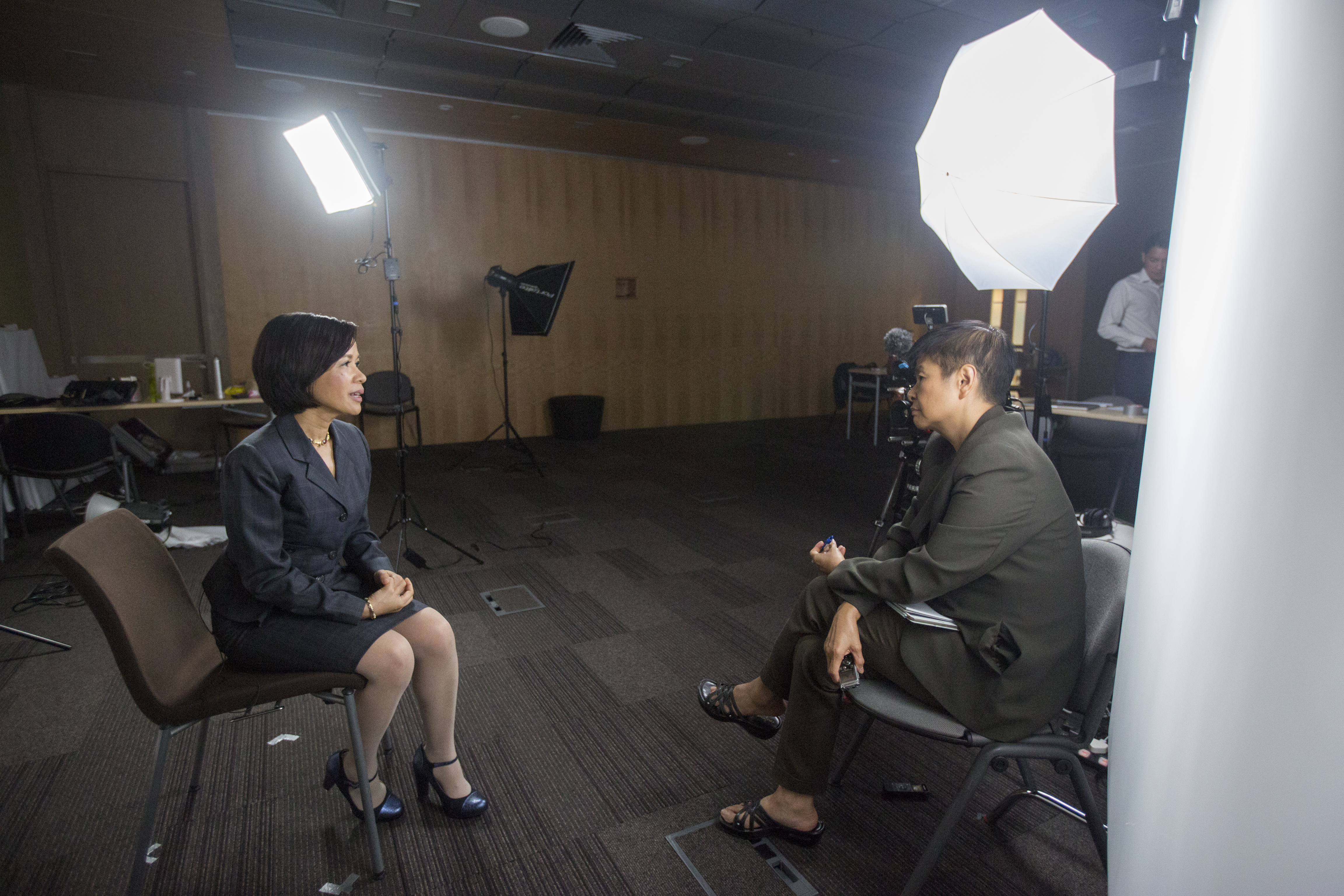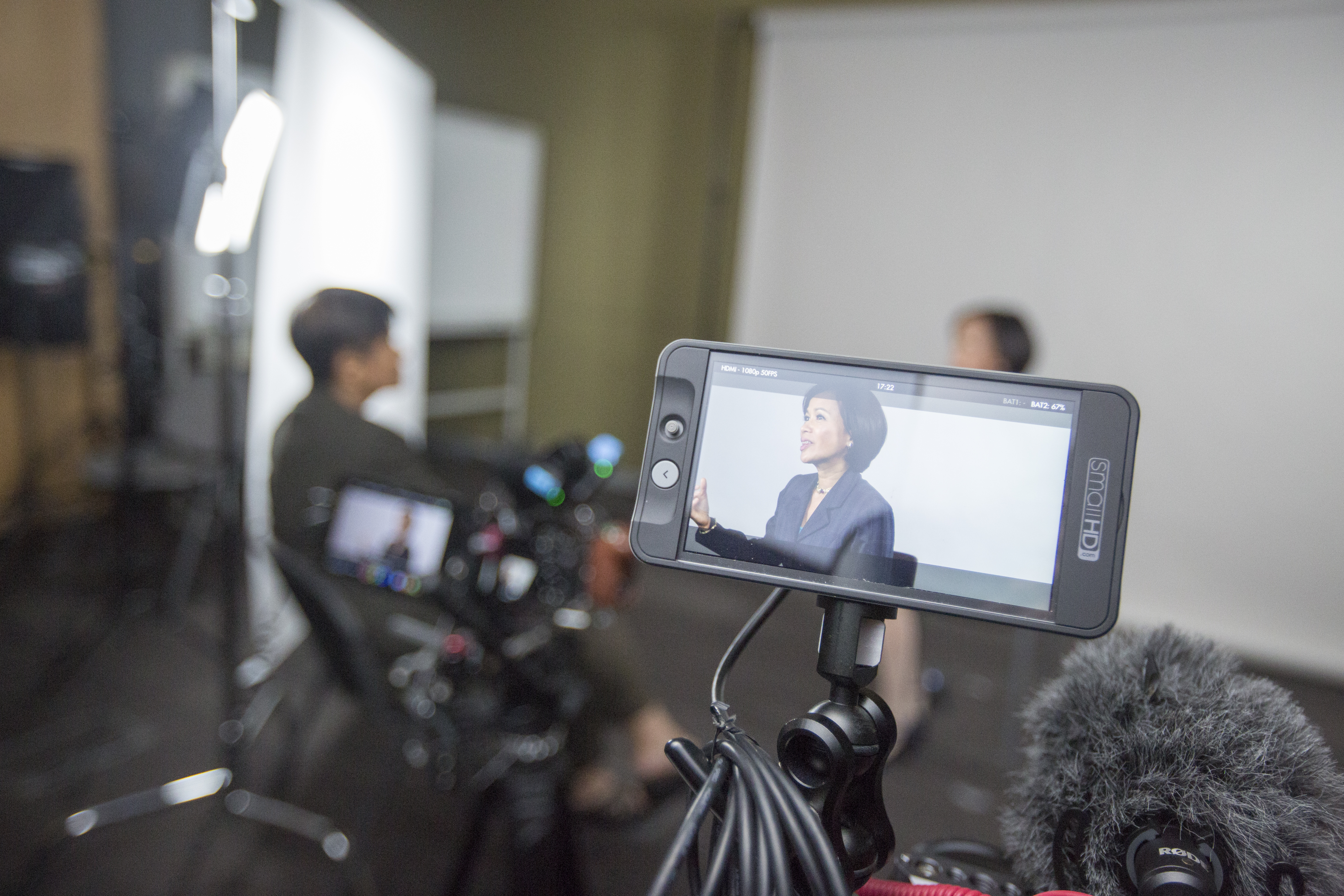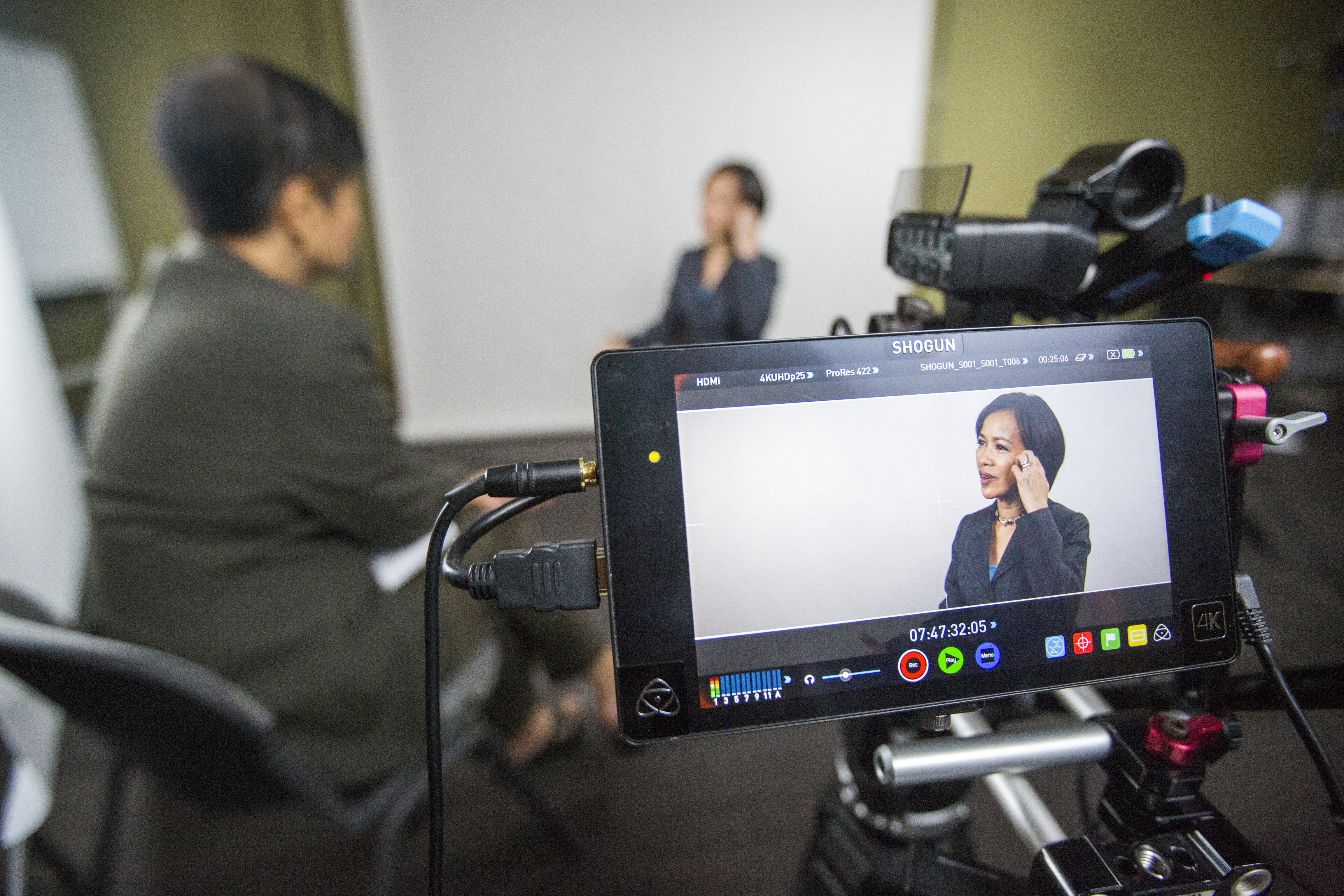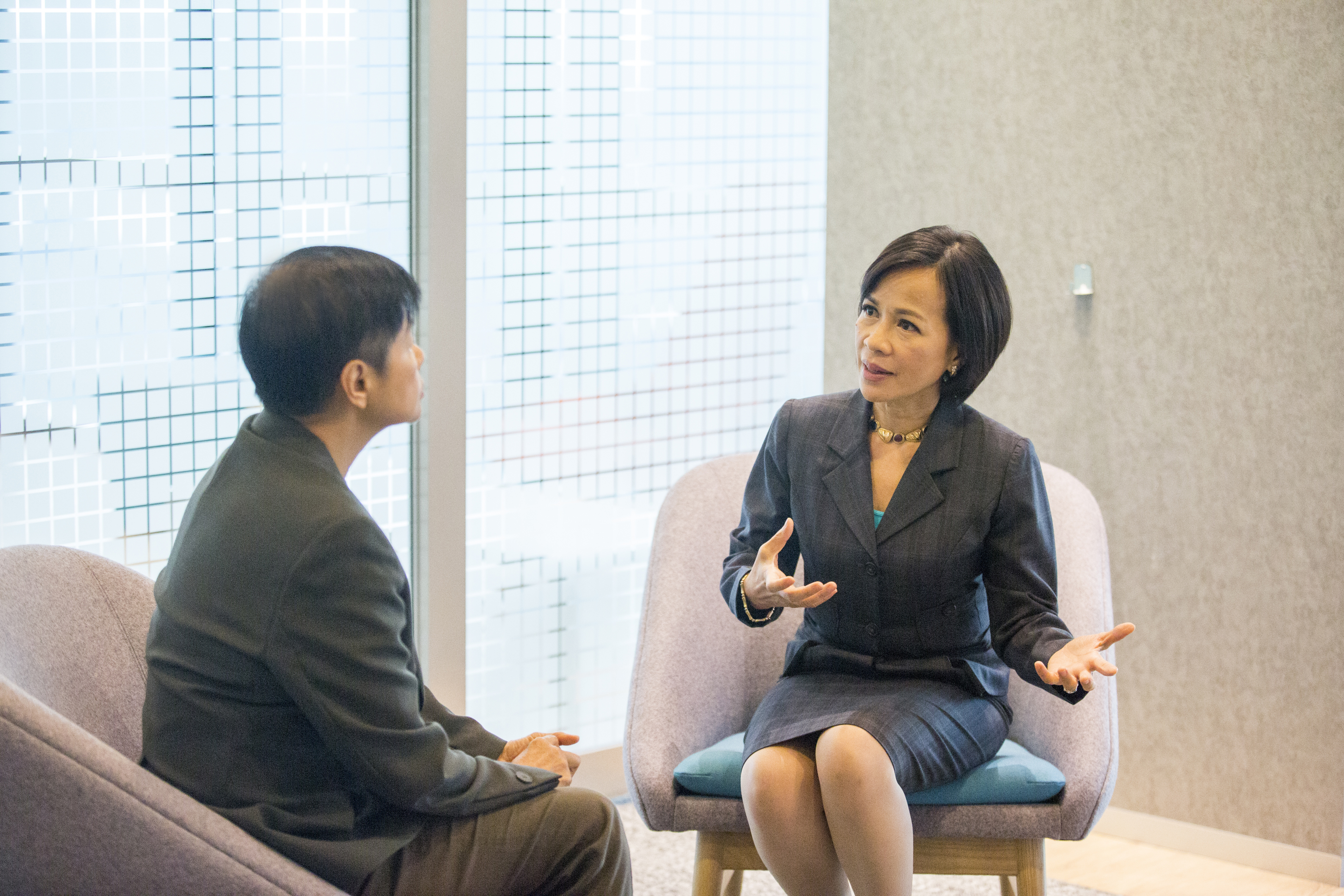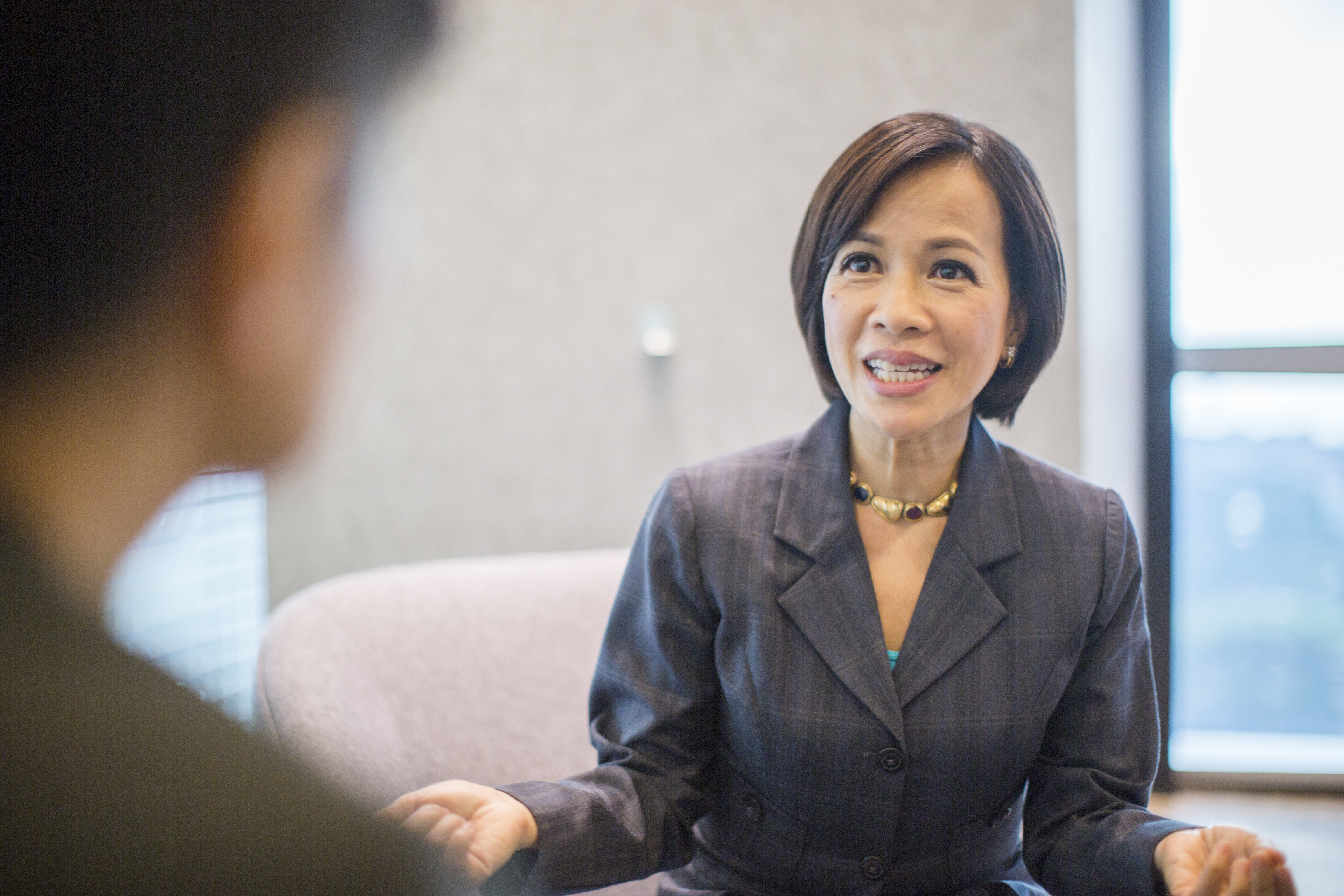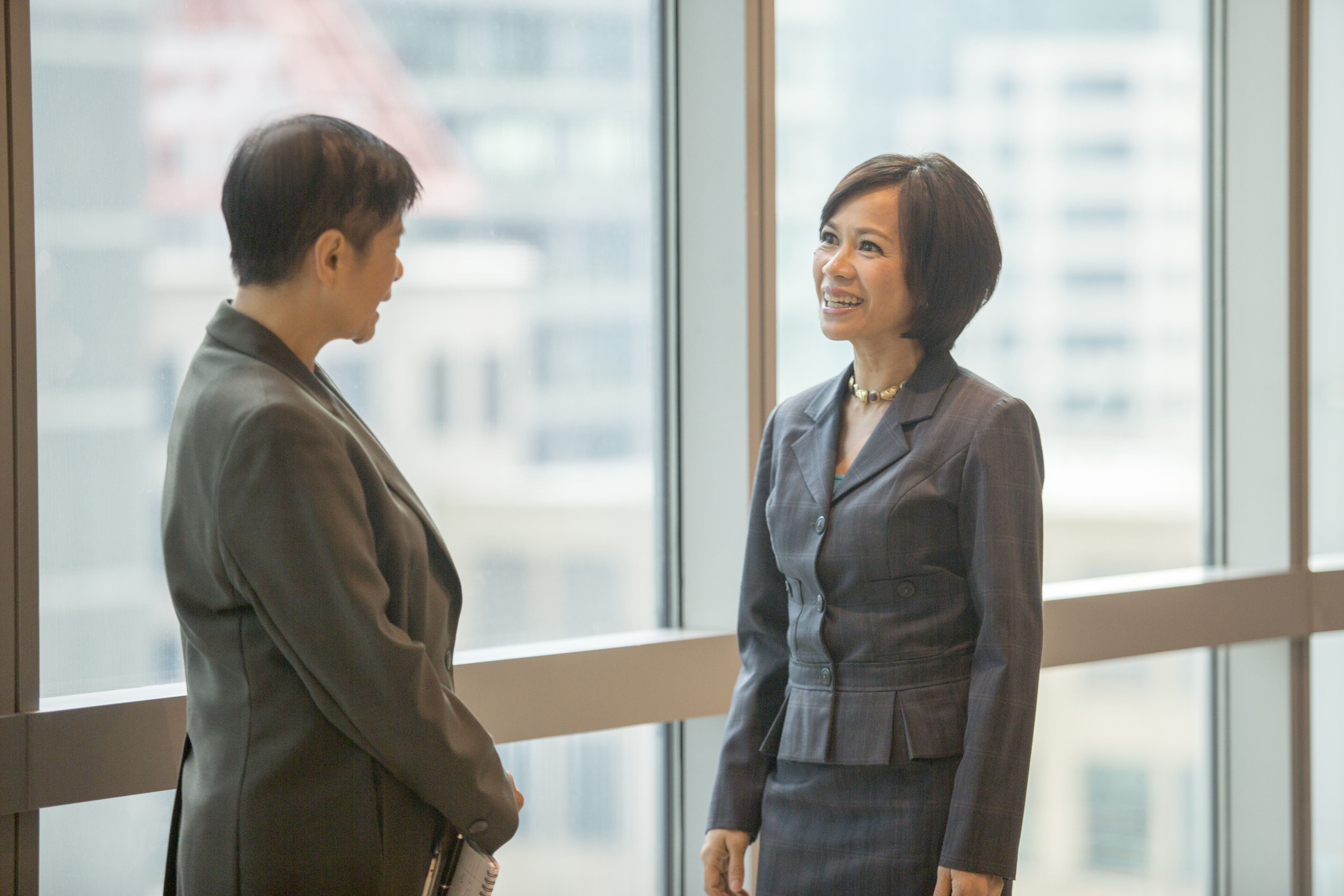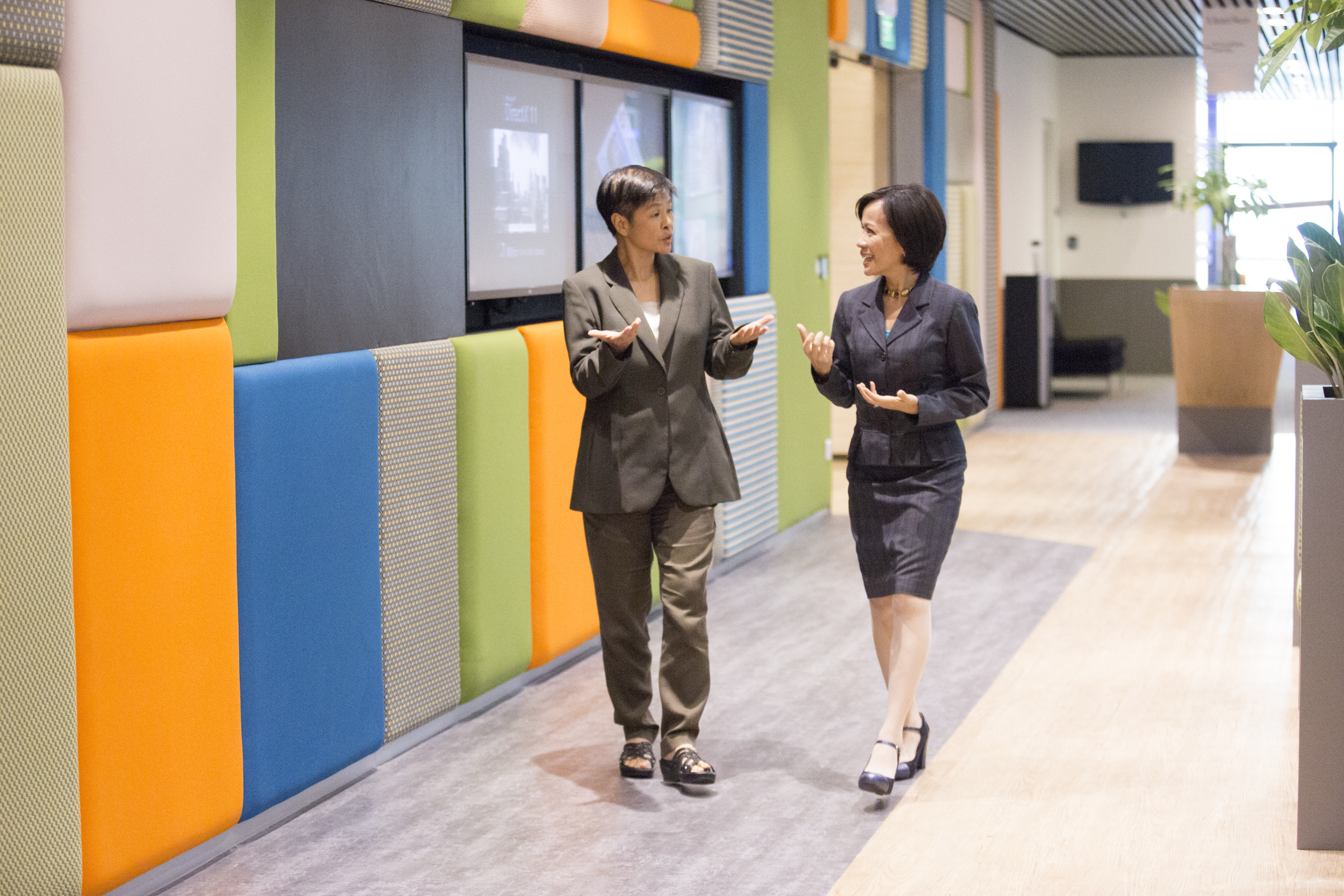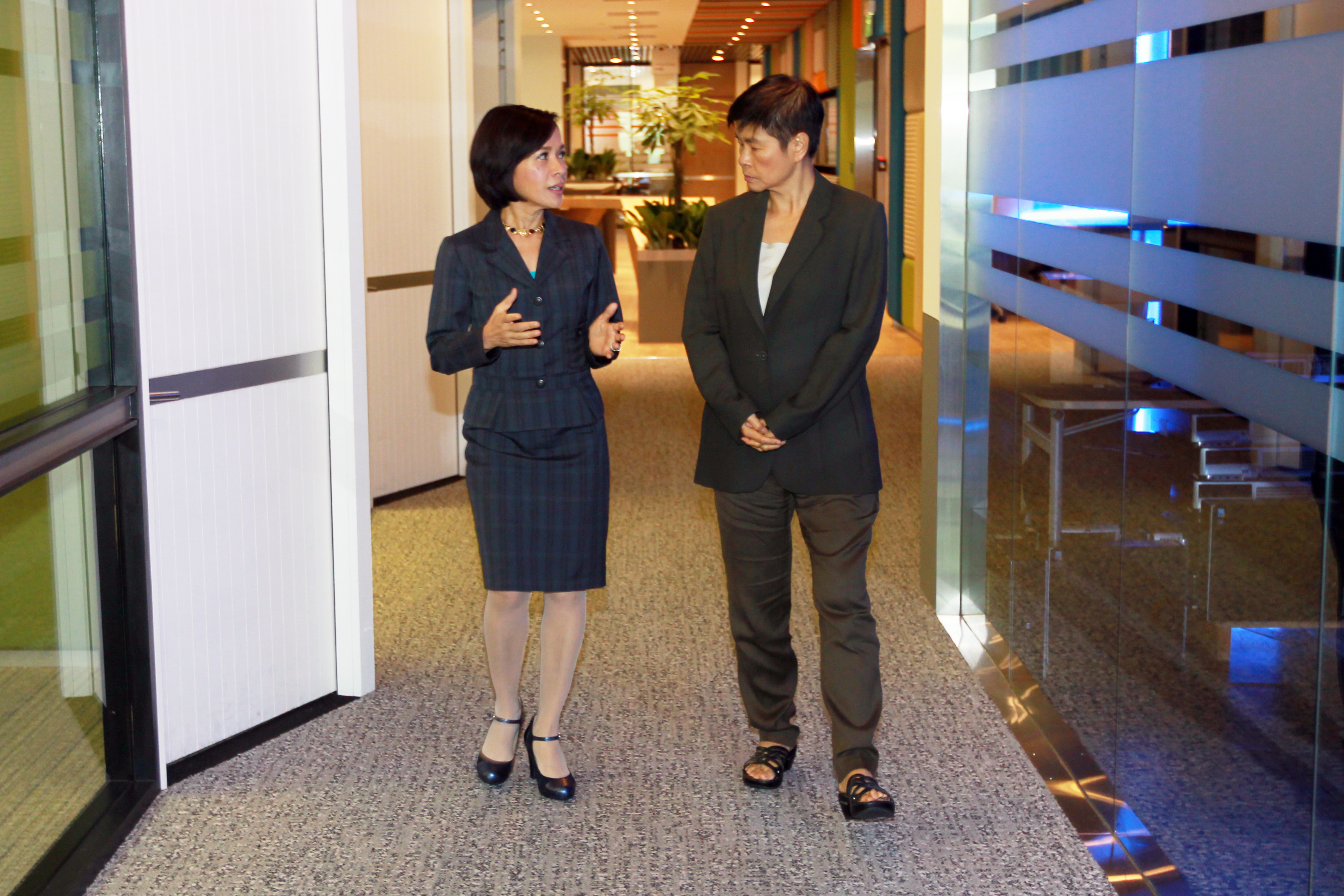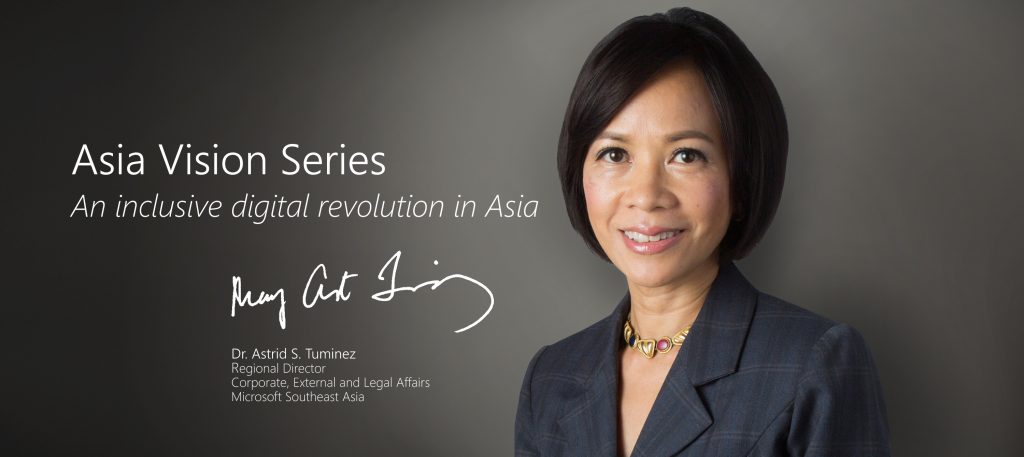
Can Asia address the inequalities of growth?
In our Asia Vision Series features, we dive into key industry trends and issues with our subject matter experts and visionaries in the region. In part 1 of 3 of this interview, Grace Chng, one of Singapore’s most senior tech writers, speaks with Dr. Astrid S. Tuminez, Microsoft’s regional director for Corporate, External and Legal Affairs for Southeast Asia. Tuminez shares how her journey growing up has fuelled her passion for diversity and inclusion – a mission ever more pertinent in an increasingly digital world.
Growing up in the slums of the Philippines, Dr. Astrid S. Tuminez did not have the luxury of eating regular breakfast as a child. She was one of seven kids and life was hard for her family. She had only one pair of socks, which she would wash once a week. When it rained, she plugged the holes in her shoes with lollipop wrappers. When she was five years old, the Catholic nuns in the city invited Tuminez and her sisters to attend their school. That’s when her life changed.
Fast forward to today. Tuminez has degrees from two prestigious American universities, the Massachusetts Institute of Technology and Harvard. She is fluent in six languages and has worked in exciting positions around the world.
Tuminez is now Microsoft’s regional director for Corporate, External and Legal Affairs for Southeast Asia where she helps governments understand trending issues that shape regulations and policies, including how to drive inclusive growth amid the 4th Industrial Revolution.
“I was illiterate on the first day of school. In my school, the smartest child was put in the first seat, first row. The dumbest child was in the last seat, last row, and I was actually in the last seat, last row,” recounts Tuminez. “But after a few months, I’m happy to report that I ended up sitting right in front – and I’m here where I am now all because of my access to education.”
Her personal journey is a key source of motivation behind her passion to empower others to fulfill their dreams and potential. This mission has become especially relevant now as digital disruption changes people’s lives.
The 4th Industrial Revolution is an emerging era driven by the confluence of data, cloud computing and analytics. “People with just a device and internet connectivity now have more information and power in their hands than was imaginable 20 to 30 years ago. Artificial intelligence, machine learning, robotics, and genomics are transforming every aspect of how people live, communicate, work, and learn,” says Tuminez.
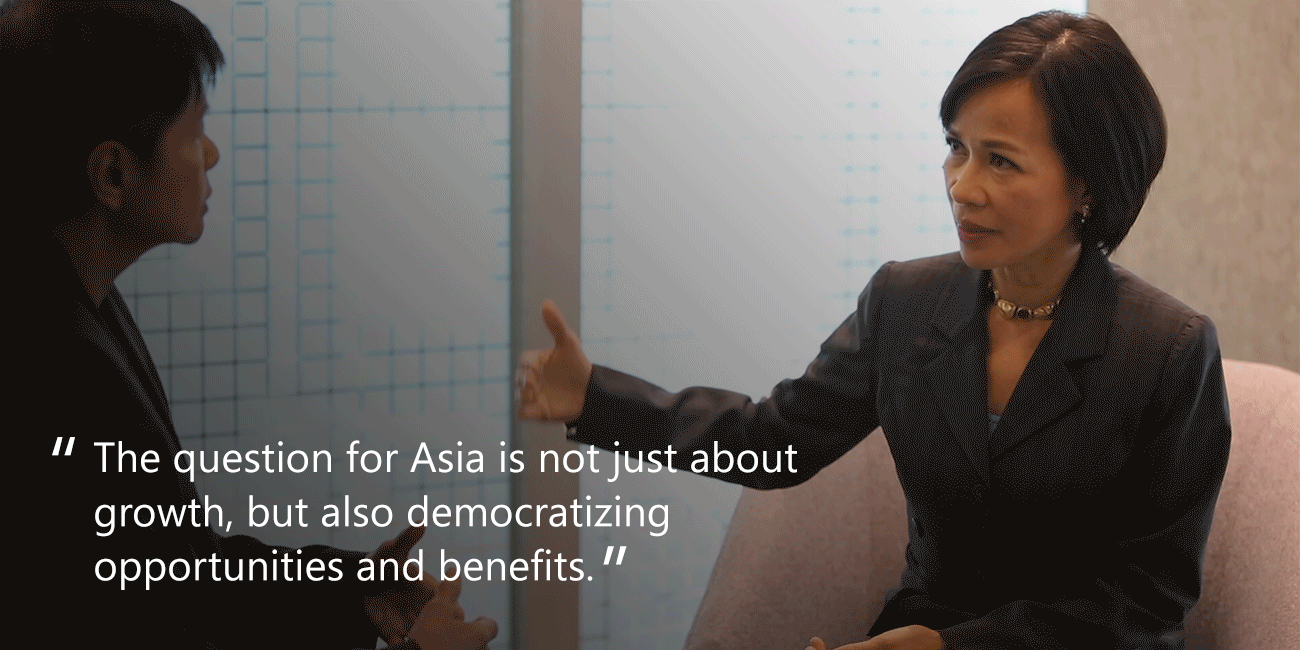
But technology can be a double-edged sword. What happens when its capabilities and benefits are not available to everyone? How do we ensure its opportunities are universally accessible?
Asian economies have enjoyed decades of strong expansion, but Tuminez argues passionately that this growth has been uneven – with inequalities surrounding gender, disabilities, and access to education.
Governments, the private sector and non-profit organizations must work together to ensure that these inequalities are addressed, she says.
“To participate and thrive in this new digital world, Asian countries must put in place the right foundations that will lead to an inclusive environment. We need policies to ensure that technology helps solve real problems, and that its benefits are spread more evenly across all levels of society. This is also the crux of our own sustainable growth philosophy of not leaving anyone behind. This new industrial revolution should not be just for the affluent and well-educated or those born in wealthy countries,” Tuminez stresses.
What does inclusive growth mean for Tuminez? She sees five factors. First, people must be digitally literate so they can understand technology and use it safely without falling prey to cybercrime and other nefarious activities of the internet’s underworld. Secondly, there must be affordable internet access so people can harness technology to their advantage. Thirdly, next generation skills in big data, analytics and other emerging technologies must be available to everyone so they can get good jobs. Fourthly, the disabled must be empowered with technology to enable them to live full lives. Lastly, all businesses should have access to the same technology regardless of their size.
Tuminez says new technologies are already addressing real life problems. She points to one example in the Indian state of Andhra Pradesh where an app can tell village farmers via their mobile phones when it is best to sow their crops, based on data analytics looking at weather, soil, and other factors.
Some progress is being made, but there are still major challenges – such as a lack of educational opportunities for people in many Asian rural areas. “You can go to a remote island in the Philippines or Indonesia and you will hear people say, ‘Oh, after 3rd grade, there’s nothing here unless we move to the city.’ Since they are farmers, they can’t move to the city, their education ends at 3rd grade. This will be a growing social problem because people cannot improve themselves without education,” says Tuminez.
Through programs such as the Affordable Access Initiative, Microsoft is working with various governments and partners in the region to provide educational resources, especially in the rural areas. For instance in Indonesia, it is supporting a digital learning solutions provider called Kelase to bring online content, as well as collaboration and productivity tools, to students and teachers in villages. Microsoft has also awarded a grant to the WiFi Interactive Network (WIN) in the Philippines to spread the availability of internet access in rural areas by tapping TV Whitespace technology.
“These initiatives are exciting because they will make quality education available to children who live deep in the provinces and rural areas. Education empowers people to have skills, allowing them to be more responsible for their own fate,” says Tuminez.
Looking ahead, Tuminez is optimistic and believes Asia’s booming young population differentiates it from the rest of the world. With a high proportion of millennials and digital natives, she thinks the region can embrace emerging technologies, such as mobile and the cloud, for the 4th Industrial Revolution. This will empower people to solve many of their own problems through technology, resulting in greater prosperity for society and businesses – and that will ultimately lead to greater stability in the region.
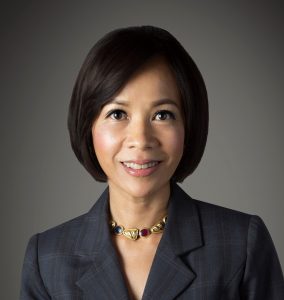 Dr. Astrid S. Tuminez
Dr. Astrid S. Tuminez
Regional Director, Corporate, External and Legal Affairs,
Microsoft Southeast Asia
Based in Singapore, Dr. Astrid S. Tuminez is responsible for driving government relations, corporate citizenship, as well as business and regulatory initiatives in the region. She is also an accomplished global speaker and widely published author. In 2013, Tuminez was selected as a “Top 100 Global Influencer” by the Filipina Women’s Network of the United States. She has held leadership, consultancy and research roles with organizations such as the Lee Kuan Yew School of Public Policy, US Institute of Peace, AIG Global Investment Group, Carnegie Corporation of New York, Council on Foreign Relations, the World Bank, and Bank of Philippine Islands.
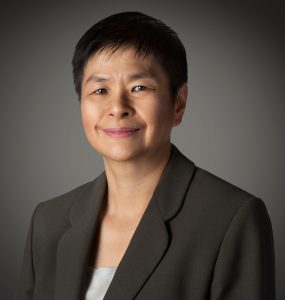 Grace Chng
Grace Chng
Grace Chng is among Singapore’s most senior tech writers, with wide experience setting up and managing editorial teams in the city state and across the Asia Pacific region. She was the key tech writer for Singapore’s national broadsheet The Straits Times for over two decades. While there, she co-founded and edited the technology section, Computer Times (which later became Digital Life), for nearly 19 years. She has interviewed many of the world’s top tech leaders, including Apple’s co-founder Steve Jobs, Microsoft’s co-founder Bill Gates, Airbnb’s co-founder Nathan Blecharczyk, Catcha Group’s chairman Patrick Grove, and Lazada’s CEO Maximilian Bittner.





